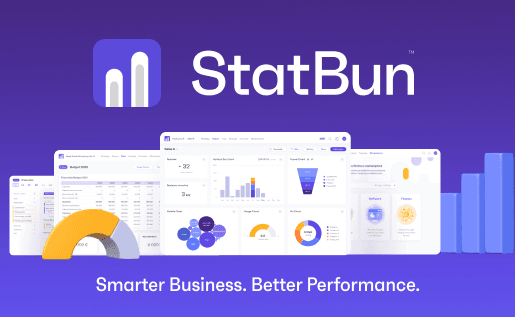Successful business
What is success and from whose perspective is it defined? Entrepreneurs’ success stories often paint a picture of courageous pioneers who, through hard work, ingenuity and risk-taking, achieve extraordinary things. Finland’s most successful companies are judged on the basis of the finance they raise, their turnover, net profit and equity ratio.
But should we think about success in broader terms than the personal success of an entrepreneur or the numerical milestones of a single business? Toni Kemppinen(Talgraf Oy), the entrepreneur behind StatBun, talks about success as a joint effort and process. He highlights the reasons why many entrepreneurs struggle to succeed and how to improve the conditions for business success.


Success as a shared value creation
Success is measured in terms of targets achieved, often in the light of the company’s financial figures. However, rather than just the bottom line, it is important to understand the things that lead to the achievement of the objectives set. Toni sees success as partly the result of good decisions and smart actions. It is a continuous journey of development with daily actions, not the achievement of a destination in a single moment. Above all, it is a collective pursuit of goals and a continuum of value creation. Entrepreneurs and businesses can only succeed together with their stakeholders.
Success is the value created in everyday activities to achieve goals. It is what we create and experience as a result. It is about how we get others to engage in a shared value process with us. And what we can enable around us as a result.
From this perspective, success is strongly linked to the drive of companies and their stakeholders towards a shared vision of leaving a positive fingerprint on the world through their own and collective actions. So what does the vision that StatBunhas created mean, crystallised as a drive towards a world with more better performing companies?
Better success is the power of success together. It’s about as many people as possible succeeding. I believe this will lead to a positive success spiral, where everyone becomes more and more successful.
The ecosystemic idea of success as a shared continuum of value creation and sharing requires companies to be open, to put customers at the centre of their activities and to link business processes and models to other actors.
The challenge is the lack of understanding of the future
His long experience in entrepreneurship and business has taught him that most entrepreneurs have not only the desire but also all the information they need to make the best decisions and succeed.
I found that entrepreneurship is easy in theory, but in practice 90% of entrepreneurs find entrepreneurship difficult and fail or only partially succeed in implementing their recipe for success.
Why? Success is often hampered by unclear objectives, a lack of planning, excessive and dispersed business information that makes business analysis difficult, and an inability to see the impact of these issues in financial metrics and cash flows.
All of this makes it difficult to perceive relevant information, to analyse the business in a coherent way and to make decisions. Complex and disparate information systems make it all more difficult. As a result, business is often managed in a fragmented way, without using the available information to gain a view of the whole and make the best possible decisions. This in turn leads to time being spent on things that are irrelevant to the business and even completely wrong. In the end, the result will only appear as a result of doing something afterwards, when it would be important to understand causality in advance.
But the good news is that it is a process that can be done well by everyone.
Knowledge management as a success factor
How can we improve the conditions for success by focusing on the right things in the shared value continuum? First, it is important to have technological systems and structures that support the information needs of the business. Well-chosen technology solutions lay the foundations and contribute to the creation of continuous value and innovation.
By bringing all the business information a company needs in one place, it can combine it to create clarity in managing its business. But it’s not the data alone that matters, it’s what you do with it. To do this, business management tools are needed to make it possible and inspiring to use the information brought together in one place for business purposes.
Toni points out that data alone and the tools that make it easier to use are not enough. You also need skills and resources. Most companies need support in developing business capabilities and knowledge management tool skills. The best tool solutions are combined with service models that support interaction and skills development within the organisation, enabling coherent and inclusive success management.
If an entrepreneur cannot find or possess the necessary quantitative or skills-based resources themselves, they also need reliable and competent partners. Finding the most suitable partners and successfully working together, focusing on what matters most for the success of the business, requires unhindered interaction and knowledge sharing. This is supported by effective tool sharing.
StatBun as an enabler of success
The idea for StatBunwas born out of a marriage of customer need and technology for this need, which Toni identified together with entrepreneurs, their stakeholders and business experts. He decided to develop a platform that combines the necessary business knowledge, skills and insights, tools, entrepreneurial networks and support in a way that enables better business and value creation processes for entrepreneurs and their stakeholders – and maximum success.
We created StatBun to help the world have more better performing companies.


